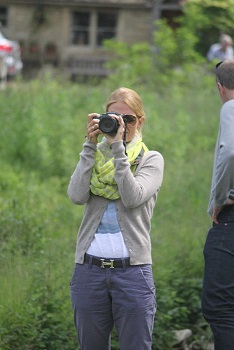Learn Photography and Management in the One Course
Improve your employability as a photographer, by broadening your skills and knowledge.
Many people love photography, and dream of making money from their passion; but the reality is than all too often, the dream sours.
Why?
Because taking good photos, and making money from photography, are two different things, requiring two different skills sets.
This course has been the solution for others in the past; and can also become your solution if you work at it.
There are 4 core business/management units, 3 photography units, and 200 hours of either work experience or industry relevant project work, focussed on the photographic industry (preparation and sub mission of a folio can also be accepted here).
CORE UNITS
Office Practices
Develops basic office skills covering use of equipment, communication systems (telephone, fax, etc) and office procedures such as filing, security, workplace organisations, etc.
Business Operations
- Develops knowledge of basic business operations and procedures (eg. types of businesses, financial management, business analysis, staffing, productivity, etc) and the skills to develop a 12 month business plan.
- Management
- Develops knowledge of management structures, terminology, supervision, recruitment and workplace health and safety.
- Marketing Foundations.
- Develops a broad understanding of marketing and specific skills in writing advertisements, undertaking market research, developing an appropriate marketing plan and selling.
STREAM UNITS
PHOTOGRAPHY INTRODUCTION STAGE 1
- Origins of Photography
- Film or Digital
- Photo Equipment: Part 1
- Photo Equipment: Part 2
- Processing
- Enlarging
- Lighting
- Fault Finding
PHOTOGRAPHIC PRACTICE STAGE 2
- Composition
- Photographing People
- Nature & Landscape Photography
- Colour vs. Black & White
- Special Techniques
- Illustrative Photography
- Publishing
- Business Opportunities in Photography
PHOTOGRAPHIC TECHNOLOGY STAGE 3
- Image Formatting
- Lighting
- Sensitometry Part 1.
- Sensitometry Part 2.
- Understanding Colour
- Chemistry of Colour Photography
- Filters & Attachments
- Lenses
Course Duration: 900 hours
Enrolment fee does not include exam fees (x 7). An exam fee is paid when each exam (7) is sat.
The Practical - Work Experience/Industry Project
There are four options available to you to satisfy this requirement:
Alternative 1.
If you work in the industry that you have been studying; you may submit a reference from your employer, in an effort to satisfy this industry (ie. workplace project) requirement; on the basis of RPL (ie. recognition for prior learning), achieved through your current and past work experience.
The reference must indicate that you have skills and an awareness of your industry, which is sufficient for you to work in a position of responsibility.
Alternative 2.
A one module credit (100 hrs) can be achieved by verifying attendance at a series of industry meetings, as follows:
Meetings may be seminars, conferences, trade shows, committee meetings, volunteer events (eg. Community working bees), or any other meeting where two or more industry people or people who are knowledgeable about their discipline.
Opportunity must exist for the student to learn through networking, observation and/or interaction with people who know their industry or discipline
A list of events should be submitted together with dates of each attended and times being claimed for each
Documentary evidence must be submitted to the school to indicate support each item on the above list (eg. Receipts from seminars, conference or shows, letters from committee or organisation secretaries or committee members. All such documentation must contain a contact details)
Alternative 3.
Credits can be achieved by completing standard modules Workshop I, II and/or III
Each of these modules comprises a series of “hands on” PBL projects, designed as learning experiences that involve interaction with the real world. (This approach is based upon tried and proven learning approaches that originated in American universities but are now widely used and respected by academia throughout many countries). See the web site or handbook for more detail.
Example:
Workshop I
There are 3 lessons, each involving a PBL project, as follows:
1. Workplace Tools, Equipment and Materials: Identifying and describing the operation of tools and equipment used in the workplace; routine maintenance of tools and equipment; identifying and comparing materials used in the workplace; using different materials to perform workplace tasks.
2. Workplace Skills: Determining key practical skills in the workplace; identifying and comparing commonly-performed workplace tasks; determining acceptable standards for workplace tasks; implementing techniques for improving workplace efficiency.
3. Workplace Safety: Identifying health and safety risks in the workplace; complying with industry OH&S standards; developing safety guidelines for handling dangerous items.
What is PBL? Problem-based learning has been defined as: “A learning method based on using problems as a starting point for acquisition and integration of new knowledge.”
Alternative 4.
If you do not work in the relevant industry, you need to undertake a project as follows.
WHAT NEXT?
Register to Study - Go to “It’s Easy to Enrol” box at the top of the page and you can enrol now.
or
Get Advice – Email us at info@acsedu.co.uk OR
Use our FREE COUNSELLING SERVICE to contact a tutor
CLICK TO CONTACT US